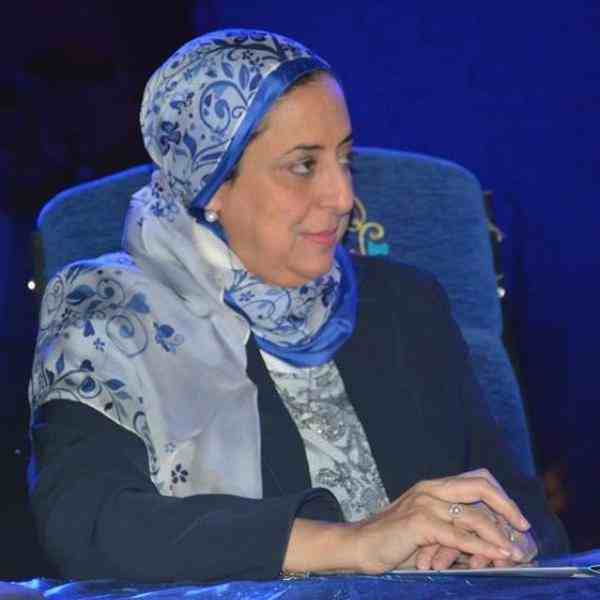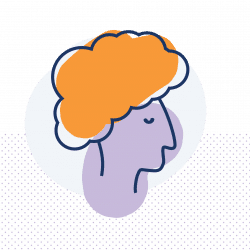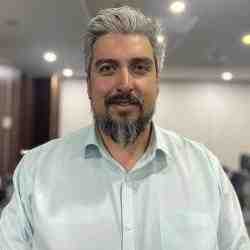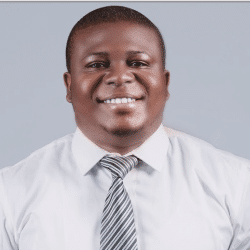Introduction
Through her establishment of the Learning Resource Center, Maha Helali is providing specialized care to those with autism and helping to better integrate them into the fabric of Egyptian society.
The New Idea
Maha is helping people with autism reach their full potential by providing the support and services necessary to help them become more independent and active members of society. She provides these individuals with necessary skills pertaining to adaptation, vocation, academic education, and other general abilities that will enable them to better function and enjoy more freedom in their lives. These services, along with her parallel efforts to increase awareness and change discriminatory laws and practices through media campaigns, will enable people with special needs to be included in society and accorded their full human rights.
To ensure the full inclusion of people with autism, Maha is working to change attitudes towards autism. By engaging parents, medical professionals, teachers, trainers, and society at large in workshops, training of trainers programs, seminars and short courses, she educates people about the disorder and teaches them how to better interact with autistic people in a structured and appropriate manner. Through national events, conferences, and the designation of April as Autism Awareness Month, Maha has deconstructed long-lasting cultural taboos and candidly advocated on behalf of those suffering from autism.
The Problem
Due to differing mechanisms of sensory perception, people with autism perceive the world around them differently than those without the disorder. As a result, they often react to situations in very different ways and have specific needs that must be met for them to lead fulfilling lives. In addition, nearly 75 percent of people with autism also suffer from some form of mental retardation, which requires further attention.
Autism is severely under diagnosed in Egypt today, and is more commonly misdiagnosed. According to the World Health Organization, 1 in every 500 children is autistic, and yet, as few as 25 percent of autism cases are actually appropriately diagnosed. In Egypt, it is estimated that 140,000 people suffer from the disorder, including roughly 51,000 children.
The gross discrepancy between autism prevalence and diagnoses, as well as social taboos and stigma, have resulted in the creation of virtually no programs in Egypt aimed to train professionals in the appropriate ways of caring for special needs individuals. The topic is not sufficiently covered in medical or psychology school, and occupational, speech, and physical therapists, have very little knowledge about the needs of people with autism.
Further, in Egypt, only 3 to 5 percent of children with disabilities have access to educational opportunities. Because autism in not diagnosed properly and few people in Egypt know enough about it to provide appropriate care, these children are often isolated within their families or segregated and placed in mental institutions where there needs are not met.
When considered together, the lack of proper diagnosis, combined with the lack of trained professionals and care-givers and an overall ignorance of the severity of the issue create living conditions that are extremely difficult for those with autism. Until Maha founded the Learning Resource Center (LRC) in 1996, there were only a few organizations that specifically catered services to this population; though their programs were severely out of date.
The Strategy
After her son was diagnosed with autism, Maha quickly realized the inadequate support systems in place to help families cope with this disability. After observing how special needs children were taught only to rely on their shadow or support teacher rather than to be self-sufficient, Maha founded the LRC to serve all special needs children. The LRC started by providing information and training to nursery and primary school teachers with the goal of helping identify children with special needs and knowing where to refer parents to get more comprehensive information.
In the year following the founding of the LRC, Maha’s vision expanded, and she created a new organization: The Egyptian Society for Developing Skills of Children with Special Needs (ADVANCE). ADVANCE provided more structural support in the form of day programs for children with autism as well as other special needs children. Quickly, the organization grew to become a multi-faceted support system catering to special needs children aged two to twenty-one with a host of training staff, teachers, professionals, and parents, all working to raise awareness.
ADVANCE, educates young people from the fields of psychology, psychiatry, and even sociology to improve the quality of care from special needs professionals. After collaborating with experts in San Francisco, she implemented a program called Assessment of Basic Language and Learning Skills (ABLLS), built on Applied Behavior Analysis (ABA), which holds that autism can be treated behaviorally. This program provided the first educational syllabus for children with special needs designed according to the latest and most advanced methods of teaching them and has been quite successful.
Maha has also started a program to raise awareness and educate people who interact with autistic individuals, including parents because she believes they are the most important allies in the fight for better education and integration. Additionally, she trains university graduates to become “support teachers” (previously known as shadows) to better assist individuals with special needs, including autism, in schools and the community.
Maha also has plans, some of which are already being implemented, to offer vocational training, job coaching, and assisted residences. In order to fully cater to the adult population, she is developing workshops that provide training to older persons with autism to help them attain the skills necessary for employment. The results of this initiative have been pioneering as Maha has successfully placed three adults with autism from ADVANCE in full-time paying jobs. The success of these programs and the extent to which a person with autism can live a normal life is exemplified by this recent achievement.
While developing programs and providing services to those in need is the primary focus of her work, Maha recognizes that sustainability relies on her raising awareness among significant stakeholders. As such, she has targeted her efforts towards COs working in the field, teachers, professionals, and parents. Through media campaigns involving TV and newspapers, Maha has organized practical workshops about autism to present global updates, breakthroughs, and advancements in the field.
Maha’s next step is to expand and replicate ADVANCE’s model throughout Egypt. She is currently conducting an experiment in the Mansoura governorate, where members of her staff are educating and training highly motivated local COs working on autism. Ultimately, in the next ten years, Maha intends to create a Higher Institute for Disability Studies with the hope of achieving her dream: To ensure that people with autism receive all the necessary tools to lead fulfilling lives with the encouragement of Egyptian society.
The Person
Growing up, Maha’s family placed a great deal of emphasis on education, autonomy, and family values. Her upbringing was very eclectic, as she spent her school year in Cairo, her summers in the country or by the sea, and often traveled abroad with her father. Coming from a big family, Maha learned from a young age the importance of generosity and looking after the welfare of others. Early on, she encountered many people with different needs; her older cousin was handicapped with cerebral palsy. Maha also learned firsthand what it means to care for a loved one, as she sat by her father’s deathbed in his ailing years and cared for her chronically ill mother.
Maha’s experience with severe chronic illness while caring for her parents was a sad prelude to what she had in store in the years to follow. At the age of two, her son Mostafa was diagnosed with autism. After spending time abroad in the Emirates and Europe, she and her husband returned to Egypt only to find that there were no comprehensive programs or facilities for children with autism. After several years of frequent visits to Europe for treatment, Maha decided to start her own center for special children in Cairo following models she had seen abroad.
In 1996 she quit her highly paid position at the UNESCO Cairo Office and established the Learning Resource Center, aimed at providing services for children with special needs and their families. The following year, the LRC started a small diagnostic nursery for children with developmental delays, and later this evolved into ADVANCE, for which she is Chairwoman of the Board. Maha has become intensively involved in advocating for special needs children and their rights, whether in Egypt or in other Arab States.
Thanks to Maha, Egypt has undergone a dramatic transformation from providing absolutely no services for people with autism, to having an entire culture and sector exclusively dedicated to this cause. As demonstrated by her extensive traveling and her position as the Arab world representative of UNESCO’s Education for All—Special Needs Education, she plans to export her idea and model to the rest of the Arab world.




